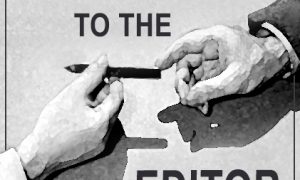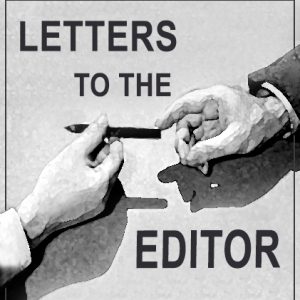To the Editor,
In 1956 Nikita Khrushchev Russia’s Communist leader said: “We will take America without firing a shot. We do not have to invade the U. S. We will destroy you from within”
Today Putin is working on the same premise as Khrushchev philosophy. Putin doesn’t want citizens to have certain rights or freedoms. Separation of powers nothing to do with judicial independence, the rule of law, private property, or any of the other things that make liberal societies prosperous and free. Putin’s comments on an understanding of the Western progressive world and values it’s, it seems, more sophisticated than that of the Internet trolls whose wages he pays. Nor is it much more complicated than Lenin’s or Khrushchev’s. Putin’s book, he writes: “the anti-democratic movement we see most visibly in countries such as Poland, Hungary, and Turkey today are an increasingly common response to the almost inevitable disappointment of democracy.” But, in the 2016 problem that Russia’s interfered in the election in the U.S., Putin involved in many European and Scandinavian countries.
What is Democracy? “democracy” comes from two Greek words: “demos” (the people) and “kratia” (power or authority). So, of course, Democracy is a form of government that gives power to the people. But how, when, and to which people? The answer to those questions changes throughout history. In Russia, citizens do not have certain rights. Democracy gives us the right to ask questions, ware as communists can’t.
Andrea Kendall-Taylor commented: “Russia and China view efforts to support Democracy—especially U.S. efforts—as thinly veiled attempts to expand U.S. influence and undermine their regimes and have consistently sought to counter Western democracy promotion.” These efforts are not new, but they are changing in scope and intensity. Since 2014, Russia, in particular, has been taking the fight to Western democracies.
Do we need Democracy? “The origin of civil government,” wrote David Hume in 1739, is that “men are not able radically to cure, either in themselves or others, that narrowness of soul, which makes them prefer the present to the remote.” The Scottish philosopher convinced that the institutions of government – such as political representatives and parliamentary debates – would serve to temper our impulsive and selfish desires, and foster society’s long-term interests and welfare.
Are people losing faith in Democracy? Citizens in established democracies still overwhelmingly prefer Democracy as the best form of government. But significant portions of the public in many advanced democracies are open to authoritarian alternatives. “In recent years, at least a fifth of the public in many advanced democracies like the idea of having ‘a strong leader who does not have to bother with Congress and elections.’ In the United States, a quarter of adults endorse that option, and 18 percent say that “having the army rule” would be a good or excellent idea. In all, three in ten Americans embrace at least one of these two authoritarian options.” Larry Diamond Stanford University
Democracy is fighting for its life around the world; political freedom is slipping away, getting dragged down by ardent enemies. We are under pressure, for justice and addition to continuing to build on the achievements of their predecessors. Expand the possibility of what citizens can and should assume from democracy. The capacity of freedom remains real and powerful if we take action. Not only defending it but broadening its reach is one of the great causes and successes of our time.
Norman Halls




